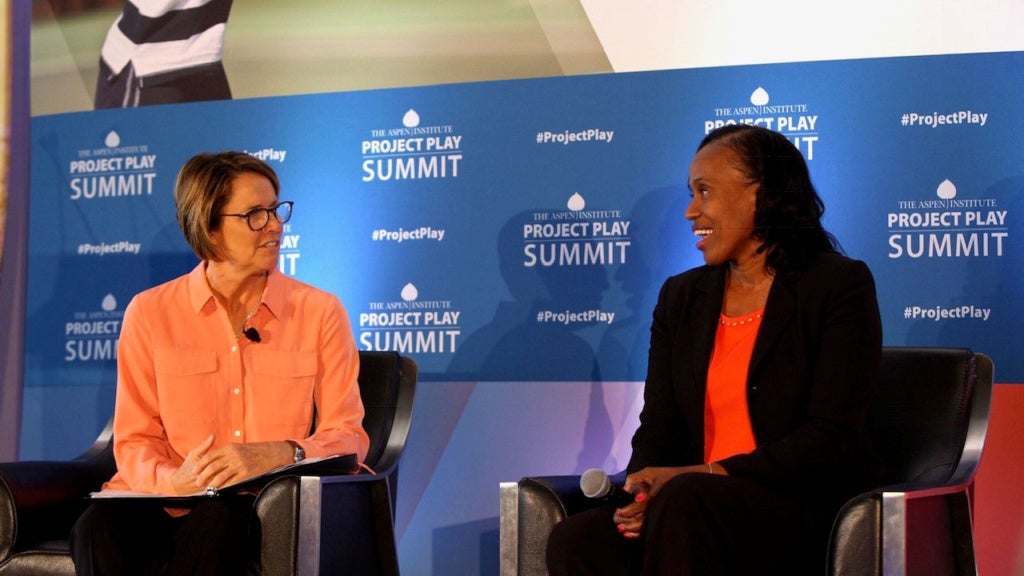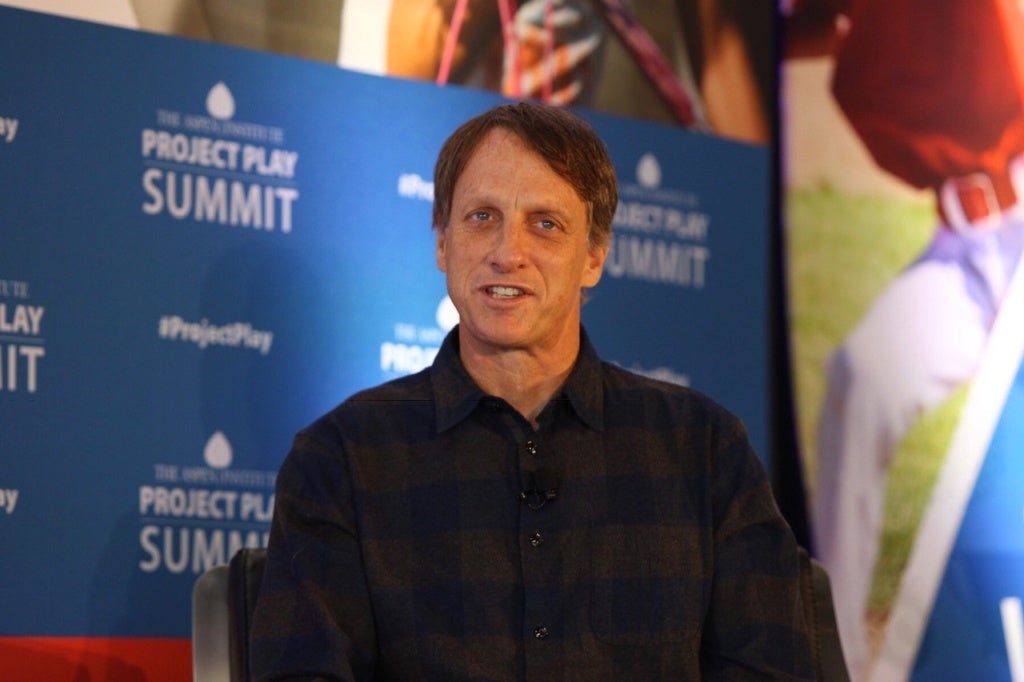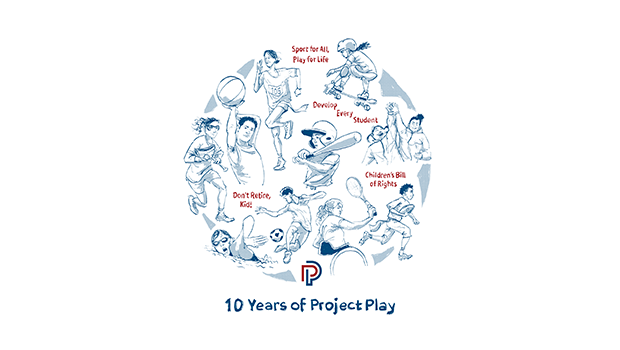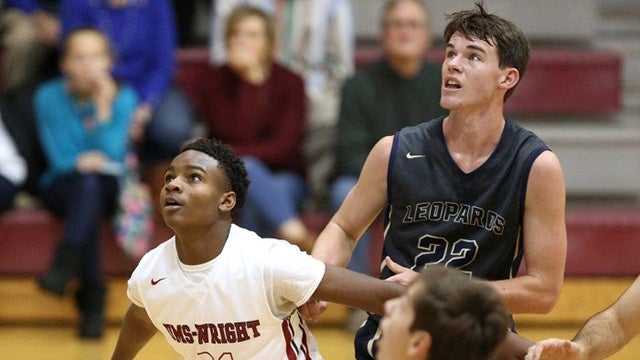At the Aspen Institute’s 2018 Project Play Summit, NBA legend Kobe Bryant urged adults to “get out of the way” and allow children to enjoy less-structured sports.
“Sometimes the most important thing you can do is just to observe,” Bryant told more than 400 people at the Newseum in Washington, DC. “You just watch and then you can guide. Get out of the way, observe, listen and guide.”
Bryant’s comments came on the heels of an announcement from Nike and the United States Olympic Committee to develop a free, 30-minute training course on coaching kids 12 and under. The course, HowToCoachKids.org, was inspired by the Aspen Institute’s Project Play 2020 effort to increase the quality and quantity of volunteer youth coaches in the US.
There are 6.5 million volunteer youth coaches across the US, yet fewer than 4 in 10 are trained. As a result, too many kids drop out of the sports or activities they once loved – fueling the inactivity crisis instead of helping to reverse it.

Bryant learned the European model of youth sports while spending much of his childhood in Italy. The best coaches he had contained similar traits: They were never condescending, they were not abusive with how they taught the game, and they encouraged questions.
Bryant’s post-NBA career includes coaching his 12-year-old daughter’s basketball team. Youth sports have become very structured, “which is very concerning,” he said. “We don’t have time to bring that imagination out. It’s a really big concern.”
For the first 20 minutes of his daughter’s practices, Bryant tells the children to practice imagine themselves as players. “They do this and I wonder what they’re seeing in their heads, I wonder what they’re imagining,” he said. “But it’s for them.”
Bryant told a story about a friend coaching a boys basketball team and instructing the kids they would have a water break in five minutes. More than five minutes passed without a break and the boys continued playing. When the friend tried the same approach with Bryant’s girls team, the players immediately pushed back.
“I said, ‘Dude, you lost the team already,’” Bryant said. “Mean what you say. They’ll hold you accountable. It’s not good enough to just say, ‘You know what? Do this.’ Boys will like say I’ll do it. Girls will say, ‘I’ll do it, but explain why.’ You have to measure your words because they’re very impactful. You can’t just throw out a comment here or there, boy or girl.”
Watch All Project Play Summit Sessions and Read Companion Content
Quotable
Soundbites from the 2018 Project Play Summit

“I’m trying to help usher [skateboarding] in in the most authentic way, let’s put it that way… I feel like at this point that the Olympics need skateboarding’s ‘cool factor’ more than we need their validation – in the same way snowboarding provided that to the winter games and it’s not all ice skating. Now in the summer games, it’s not going to be all swimming. No offense to swimmers, but enough swimming events.
— Skateboarding legend Tony Hawk on the sport joining the Olympics in 2020
I want [East St. Louis kids] to really know that I walked the same streets. I worked with the same people. And that the impossible is probable.
— Olympic legend Jackie Joyner-Kersee on her foundation’s work with youth
It’s a right for children and all youth in Norway to take part in sport. It’s more or less free to participate in sport from when you are a little kid.
— Inge Andersen, former head of the Norwegian Olympic and Paralympic Committee
I’m quite optimistic [about soccer’s future in the US] because I see a change in our paradigm shift. In the past we were more coach-centered and now we’re more player-centered.
— Nico Romejin, U.S. Soccer Federation chief sport development officer
Project Play Summit Content
State of Play: 2018 National Youth Sports Report
State of Play: Mobile County Report
Project Play Summit Media Coverage
Coach Kobe: Bryant shares philosophies on how to reach kids (Associated Press)


